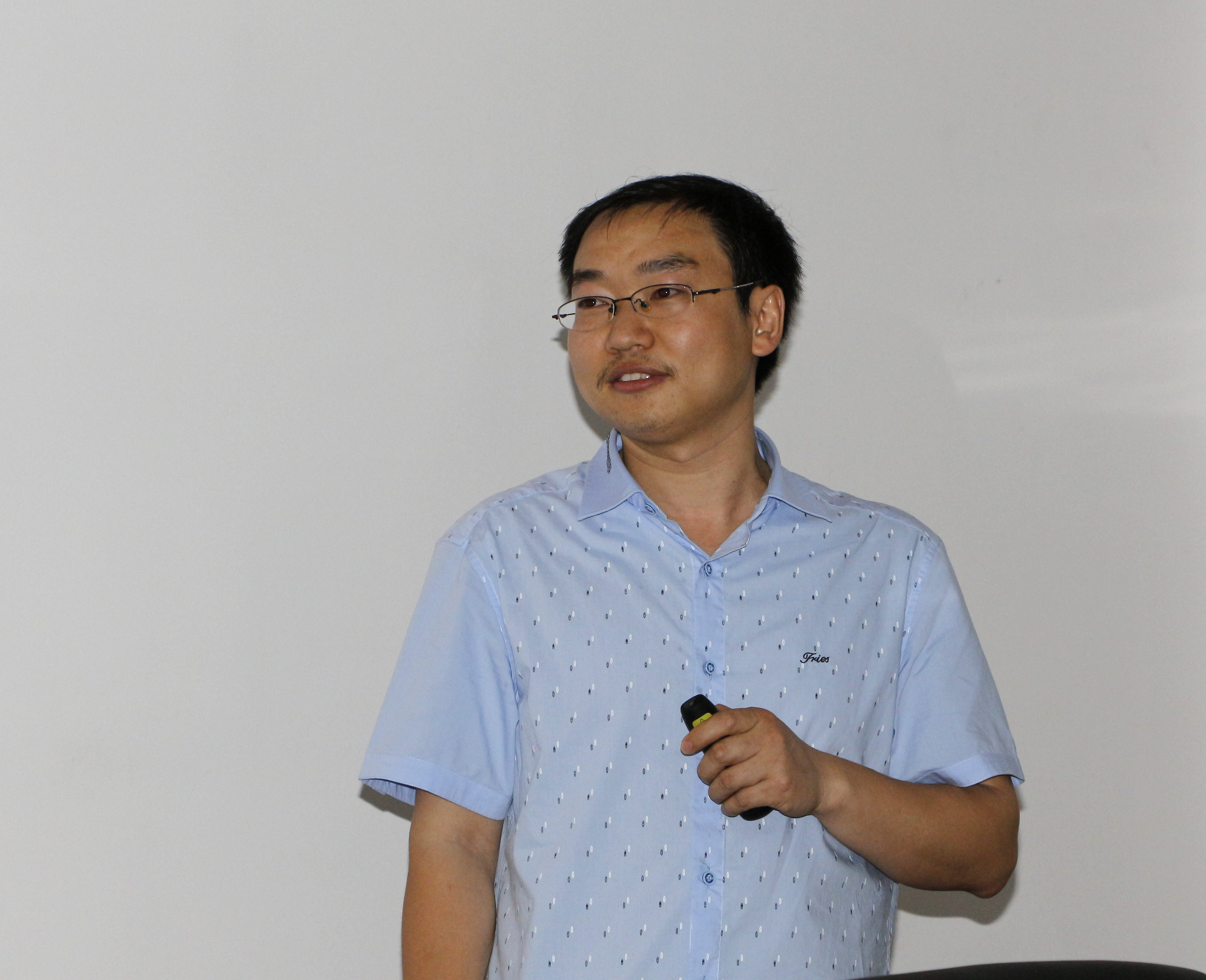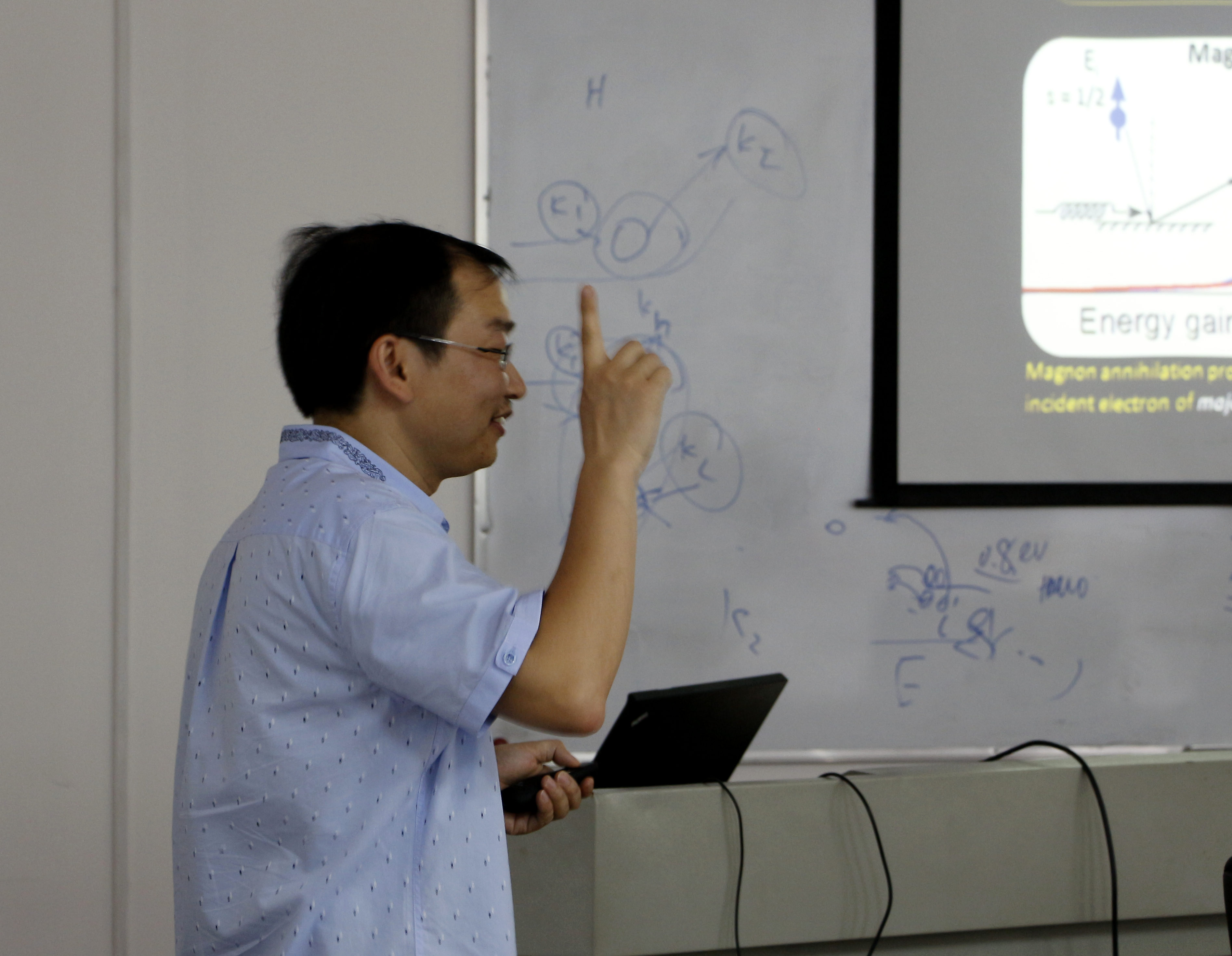报告题目:High energy magnons in ultrathin ferromagnets: Spin-polarized electron energy loss spectroscopy study
报告时间:2015 年 05 月 20 日(周三)下午 15:00-16:00
报告地点:南校区双超所 211 会议室(116 室)
联系人:孟建桥 教授 (jqmeng@csu.edu.cn)
报告人简介:秦华军博士于2005年在湖南师范大学物理系获本科学位。于2011年在中国科学院物理研究所获得博士学位,导师为吴克辉研究员。2011年5月-2015年4月在德国Max-Planck微结构物理研究所做博士后研究,导师为Kirschner教授。2015年5月在芬兰Aalto大学Sebastiaan教授研究组继续做博士后研究。在博士期间,主要应用高能量和高动量分辨率的角分辨电子能量损失谱对铜氧超导体中的电-声子耦合以及低维金属体系中的等离激元进行系统的研究。在博士后期间,主要应用自旋极化电子能量损失谱对铁磁金属薄膜中的表面磁激子(Magnons)进行系统的研究。
Abstract: Elementary magnetic excitations (magnons) are essential for understanding many fundamental magnetic properties and technological applications in magnon-based devices, ultrahigh-density magnetic recording, magnetic tunneling junctions, and so on. To probe high energy magnons, spin-polarized electron energy loss spectroscopy (SPEELS) is a powerful tool due to the capability of measuring magnons over the whole surface Brillouin zone and the capability of investigating spin-dependent scattering.
In this talk, the concept of magnons, SPEEL-spectrometer, and the mechanism of magnon excitations are introduced firstly. The magnon measurements in ultrathin FePd alloy films grown on Pd(001) are then presented. It is observed that the magnons’ energy can be largely tuned by varying Fe concentration. And the magnons’ lifetime in ultrathin FePd alloy films is rather long compared to the one in Fe films grown on other substrates. First-principles calculations revealed that the long magnons’ lifetime has its origin in the peculiar electronic hybridizations between Fe and Pd atoms. These electronic hybridizations lead to the suppression of the relaxation channels of high energy magnons and result in a long magnons’ lifetime. Finally, the temperature dependence of such long-lived magnons is also presented. Up to 400 K (1.2 Curie temperature), the magnons are still efficiently excited. The renormalization of magnons’ energy and lifetime as a function of temperature is observed, but weaker than that reported.


